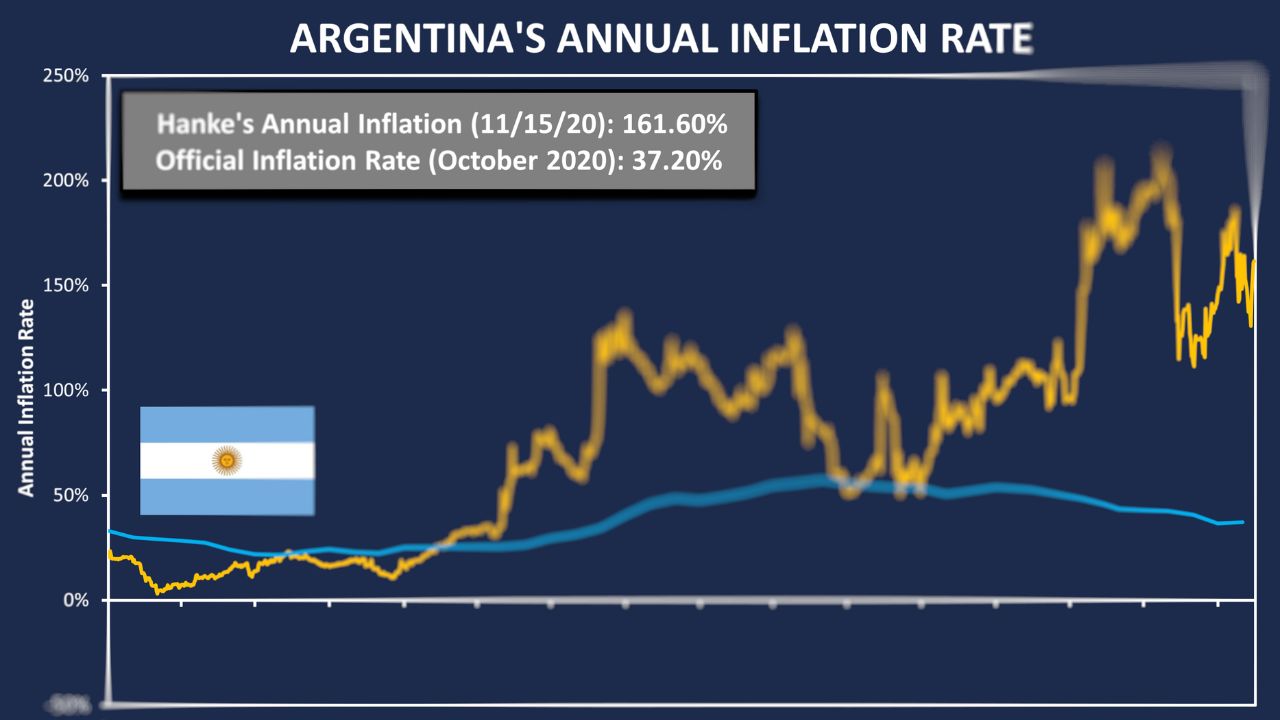Prices climbed 8.4% in April alone, the most in at least two decades.
Argentina’s inflation rate reached an all-time high of 108% year on year, with the month of April accounting for 8.4% of the total.
I measure #Argentina's #Inflation using high frequency data and #PPP each day. Today, the #peso is in the tank and Argentina’s inflation is at a stunning 161.60%/yr. With no stable currency in place, Argentina is doomed. pic.twitter.com/jxhZTrTk9x
— Steve Hanke (@steve_hanke) November 15, 2020
The July statistics, the highest in at least two decades, topped analyst expectations and was led by the textile (10.8%) and food and non-alcoholic drinks (10.1%) categories. The things that were more expensive were vegetables, tubers, and legumes; milk, milk products, and eggs; sugar, sweets, chocolates, and candies; and meats and derivatives, according to the details of the latter.
Increases in the Restaurants and motels (9.9%) and Home equipment and maintenance (8.6%) segments were particularly noticeable.
The data from the local statistics institution (Indec) comes in the middle of a backdrop marked by the ascent of the blue dollar and worries of a larger currency run owing to Alberto Fernández’s government’s regulations.
Furthermore, it is considerably behind the forecast of Economy Minister Sergio Massa, who anticipated at the end of last year that the April number would begin “with a three ahead.”
The figure ranks Argentina among the countries with the highest inflation rates in the world, eroding the population’s buying power and pushing many Argentines into poverty.
In 2022, the South American country had 94.8% inflation.
Argentina’s inflation rate from 2000 – 2023
Similar post: The debt ceiling and President Biden’s trips abroad










One thought on “Argentina’s inflation rate exceeds 108% in a year, fueled by the textile and food industries”